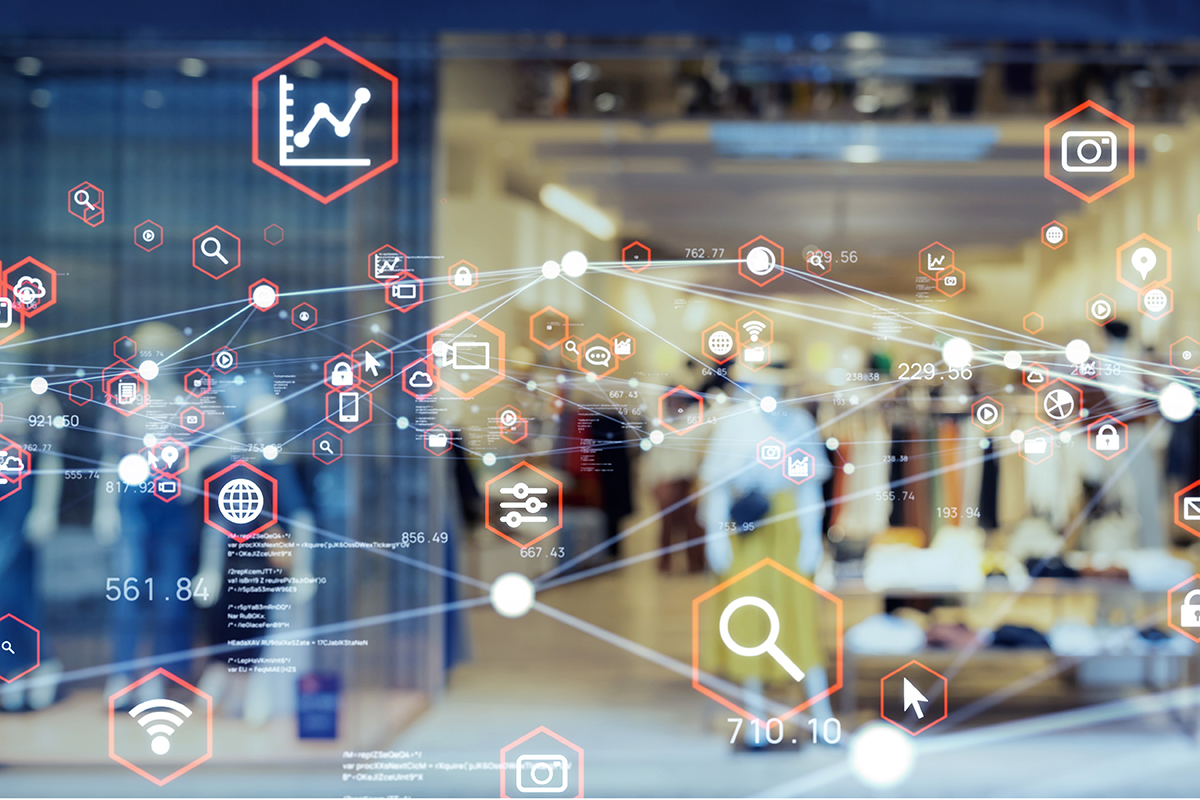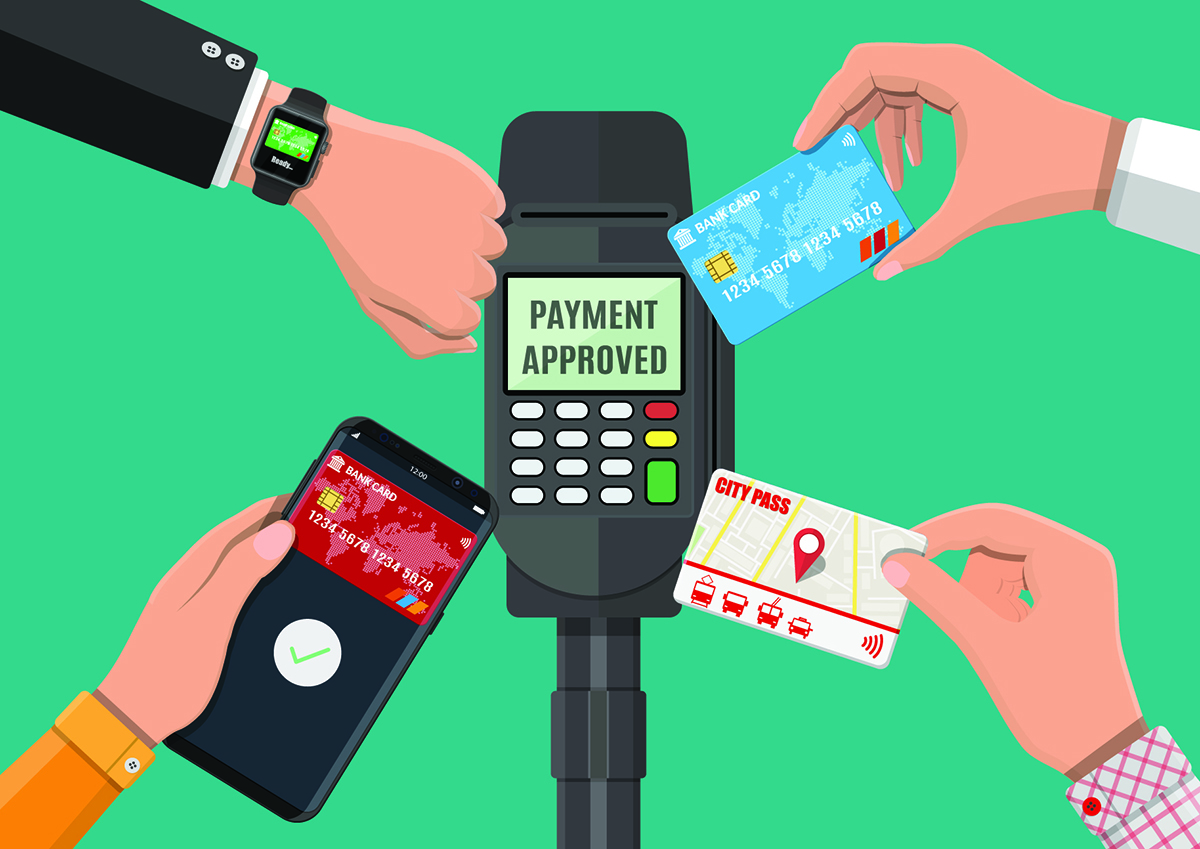The COVID-19 shutdowns sent a whirlwind of changes throughout the economy and across virtually every industry. Health care, manufacturing, and retail were some of the industries that experienced the steepest losses. As more people become vaccinated and mandates are lifted across states, it’s interesting to see how these industries will pull together to recoup some of their losses.

Before the pandemic, the retail industry focused its efforts on developing innovative technologies to keep up with consumer demand. People are looking for engaging and interactive shopping experiences that make them feel valued and seen.
It’s no secret that the artificial intelligence (AI) and machine learning (ML) fields are experiencing rapid growth. Like many industries, it was only a matter of time until these innovations found their place in the retail landscape.
AI solutions will help mitigate the common issues retailers face and hopefully lead to more intuitive shopping experiences for customers. As the world is faced with new post-pandemic challenges, it’s worth noting some of the ways the retail industry will benefit from these solutions.
1. Smart Tech Creates High-Quality In-Store Experiences

Whether it’s Amazon’s one-of-a-kind Fresh store or paying with smartwatches, enhancing the in-store experience is the retail industry’s bread and butter. The goal for retailers is to ease the stressors of shopping for traditional items in grocery stores.
When customers enter a store, it’s ideal for them to find what they’re looking for, pay quickly and go on with their day. For example, Amazon®‘s system responds when items are taken off the shelf, and customers can scan their personalized barcode to exit.
It’s about as easy as brick-and-mortar shopping can get. More stores will likely adopt these new types of technologies to improve the customer experience and save costs on in-store personnel.
2. Predict Sales Success Through Forecasting
The nature of AI lends itself to aggregating data and drawing conclusions in a way that humans cannot. It’s challenging for retailers to read in between the data to predict how sales may look in the future.
As more retailers utilize AI and ML systems, they’ll likely see an improvement in their data to forecast trends in their customers’ buying decisions. It’s always important to know what items will sell faster than others, and AI can help retailers do just that.
3. Paying with Biometric Smart Cards

Customers benefit from a frictionless payment experience when retailers offer biometric payment methods. Biometric technology has been around for quite some time and is slowly making its way into the retail sector.
Credit cards that are integrated with biometric tech allow customers to feel more protected when paying for items. Cards have fingerprint authentication, meaning if someone with a different fingerprint tries to use their card, customers will be alerted, and the transaction cannot be verified. This could mean a world of difference for cases of credit card fraud and identity theft protection.
4. Voice Recognition for Shoppers
Imagine a world where speaking to a device and inquiring about certain items at a store is commonplace. As voice recognition grows, retailers will probably take advantage of this possibility.
AI can recognize the tone of voice and craft responses according to those tones, ensuring customers are receiving the most updated and valuable information. Shopping from home with the help of voice assistants is an emerging trend that will surely change the retail landscape. With increasing curbside pickup and delivery options, implementing voice tech to alert customers when their order is ready will be a game-changer.
5. Preventive and Predictive Maintenance
When retailers use sensors that are a part of the Industrial IoT (IIoT), they’re better able to perform maintenance and upkeep to prevent any system failures.
It saves employees time and energy to perform simple maintenance tasks rather than run diagnostics to identify any problems. IIoT solutions drive cost reduction for retailers because more time is spent focusing on more meaningful tasks rather than fixing existing systems.
The retail industry can benefit tremendously from using data from intelligent edge devices, including recovering from the pandemic. By implementing these solutions, retailers will likely recover what they lost during the lockdown and thrive again.
How Ambiq Contributes
IIoT will enable key industrial sectors to thrive once again in a competitive environment. Ambiq uses ultra-low-power technology enabling millions of wireless sensors connected to power companies in the retail space. Its patented Sub-threshold Power Optimized Technology (SPOT®) platform reduces total power consumption for battery-powered edge devices, allowing industries to benefit from edge intelligence.

